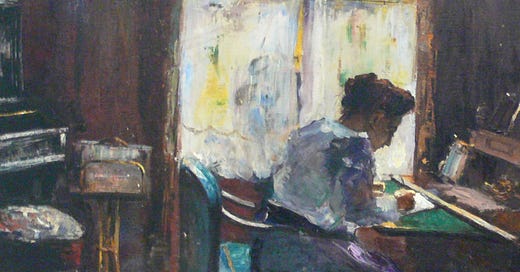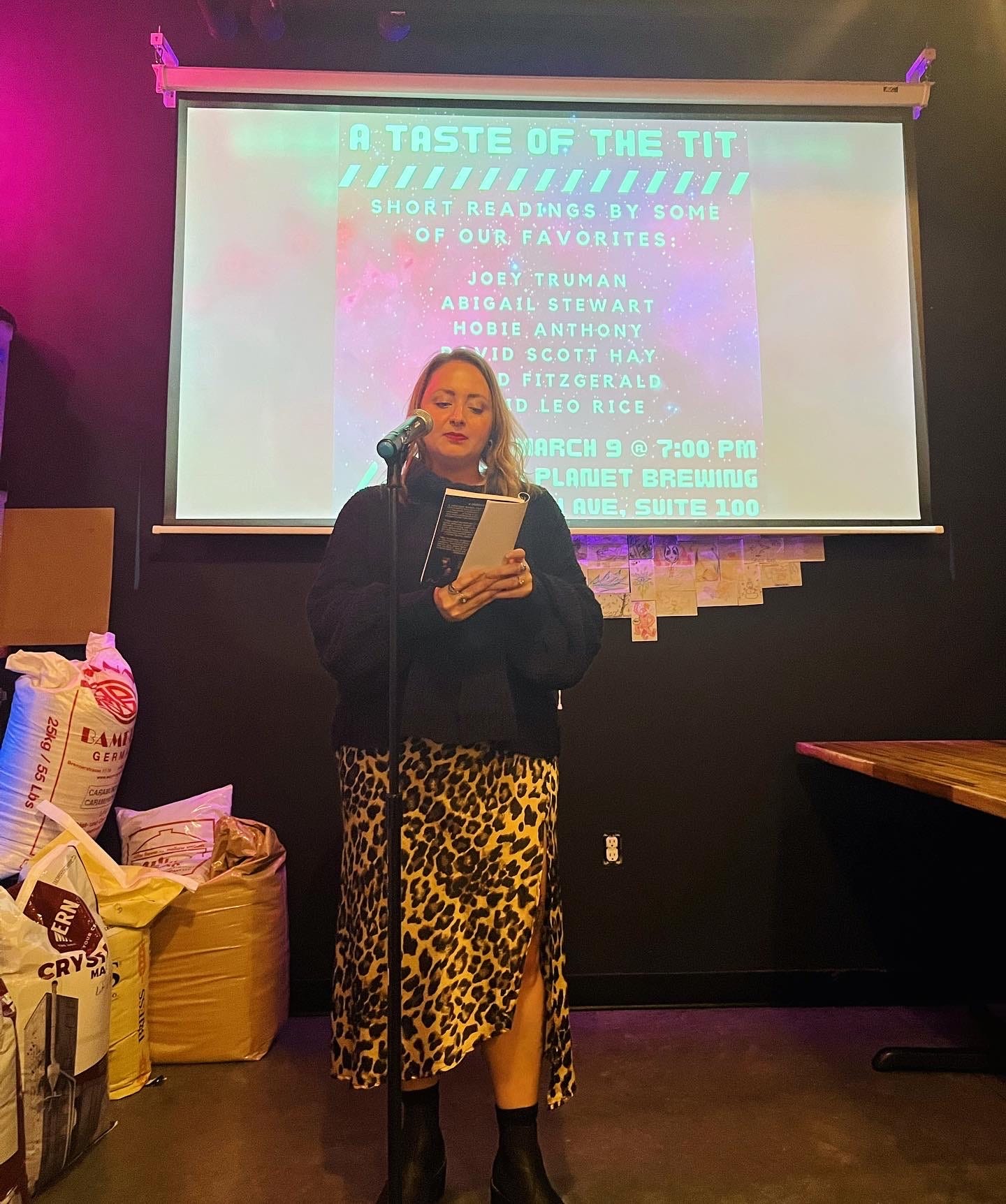A few book updates:
Vol 1 Brooklyn posted an excerpt from the first few pages of Foundations: read it here.
I did a podcast (Finding Favorites) where I discussed my book, artist’s journals, and the brilliant concept of dips for dinner: listen here.
And, Foundations officially released March 8th — so, you can buy your copy at Bookshop.org, via WhiskeyTit’s website, Amazon, or order it from your local indie. If you do read it, consider dropping a review somewhere!
Performance is an integral part of writing – you read your work, talk about it, showcase it online. Suddenly, ‘the work’ is no longer this private thing you’ve been hiding in the recesses of your laptop’s hard drive, it exists in 3-D. I spent the last couple of weeks reading from the newly published Foundations and attending AWP in Seattle, where I read with the WhiskeyTit crew and sold out of books at the book fair. I also ate a ton of oysters and went wine tasting on Bainbridge Island. It was all quite lovely.
Last week, I chatted with Leah at Finding Favorites Podcast about artist’s journals, and, if you’ve been reading my Substack for any amount of time, you’ve probably already read about my love of diaristic prose, collections of letters, the intimate and unseen writing. I too keep a handwritten journal where I write freely and for myself. And, though I understand the desire to read private writings, obviously, I doubt I would ever publish it.
In the early days of the pandemic, when I was in full cabin fever mode, I did a major clean-out and tossed my early twenties journals into the dumpster outside. I did not re-read them, the rounded, girlish handwriting made me uncomfortable, as though it was written by someone else. And still, years later, I feel lighter without them staring down at me from their perch in my closet.
So I was, predictably, drawn to Forbidden Notebook by Alba de Céspedes (translated by Ann Goldstein, who also translates Elena Ferrante) for this reason. Almost immediately, I saw something of myself in Valeria who buys a notebook from the tobacconist who tells her he can’t sell it to her, then does. She spends significant time agonizing over where to hide it, only to realize there is nowhere in the house that belongs only to her. She fears the discovery of it by her daughter, son, or husband, yet she persists in keeping this increasingly haunted object.
Because when I write in this notebook, I feel I’m committing a serious sin, a sacrilege: it’s as if I were talking to the devil.
In the pages of her notebook, Valeria slowly begins to question her role in a patriarchal society — is she destined only to be ‘Mamma,’ even to her husband? Meanwhile, her daughter is striking out into a frightening modernity, while her son seems seduced by the era of the past, and Valeria is left struggling somewhere in between. She works in an office, but she’s also beset by the domestic chores of the house. Her husband, distracted by his own dreams of writing a movie script, accuses her of ‘maternal jealousy’ when she voices concerns about their adult children, further marginalizing her spoken feelings that pour out instead onto the page.
When a diary comes up in reference to her daughter, Valeria remarks that she might keep one. Her family dismisses her and her husband states that their daughter is young, she has things to say, a need for secrets, for privacy. ‘What would you write in it?’ he jokes.
My life always appeared rather insignificant, without remarkable events, apart from my marriage and the birth of the children. Instead, ever since I happened to start keeping a diary, I seem to have discovered that a word or an intonation can be just as important, or even more, than the facts we’re accustomed to consider important. If we can learn to understand the smallest things that happen every day, then maybe we can learn to truly understand the secret meaning of life. But I don’t know if it’s a good thing, I’m afraid not.
Writing herself into something of a mid-life crisis, Valeria forms a new bond, a deeply emotional friendship with someone she has known for years. Seeing herself through his eyes, she begins to view herself as a woman again, as Valeria rather than ‘Mamma,’ and this momentary brush with the imagined potential of another life causes her to reconsider the rules of society she has so stringently adhered to until now.
As in any diary, Valeria struggles to tell the truth, even to herself. The reader is more readily able to see the gaps in her stories, her particular struggles, even if she herself does not. Through Valeria’s fictional journal, Céspedes examines the values of the old world, the patriarchy, domesticity, family life, and female identity in middle-age. Brilliantly written — I was rapt for the entirety of it and have continued to think of Valeria and all her possible endings.
In the meantime, I am looking forward to spring and sunshine and warmer weather and reading some of the books I ordered from Furrowed Middlebrow Press.





